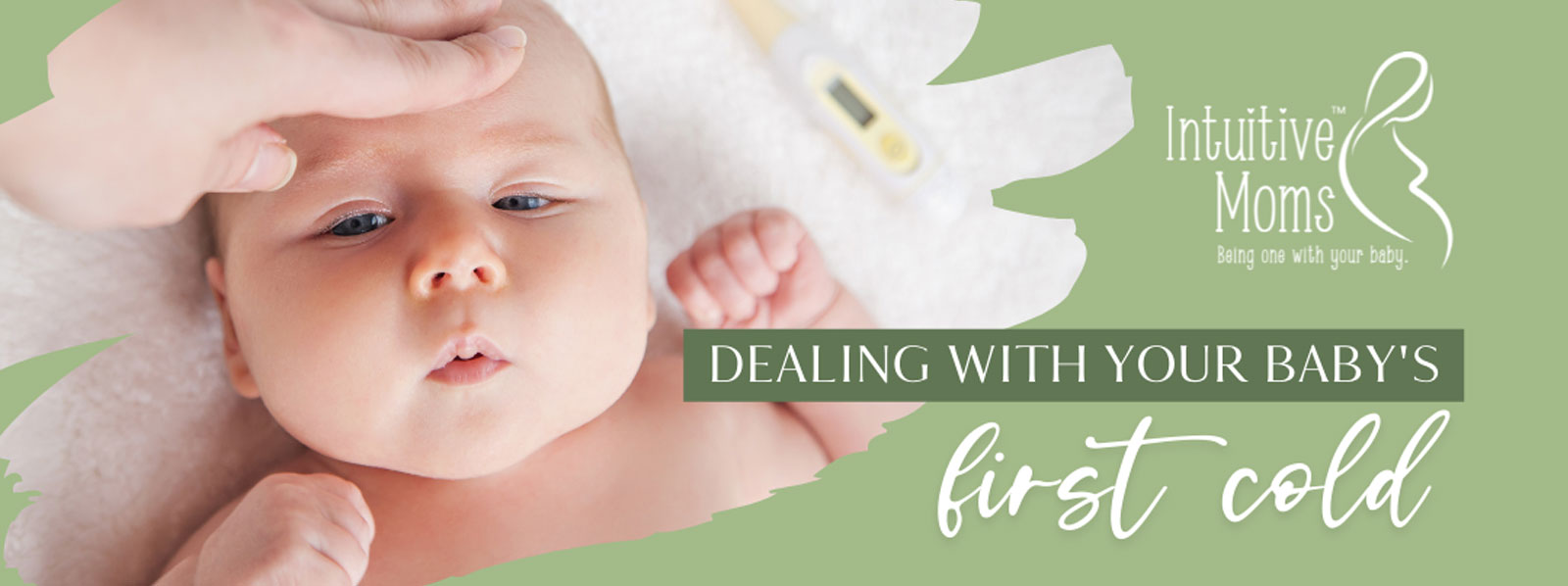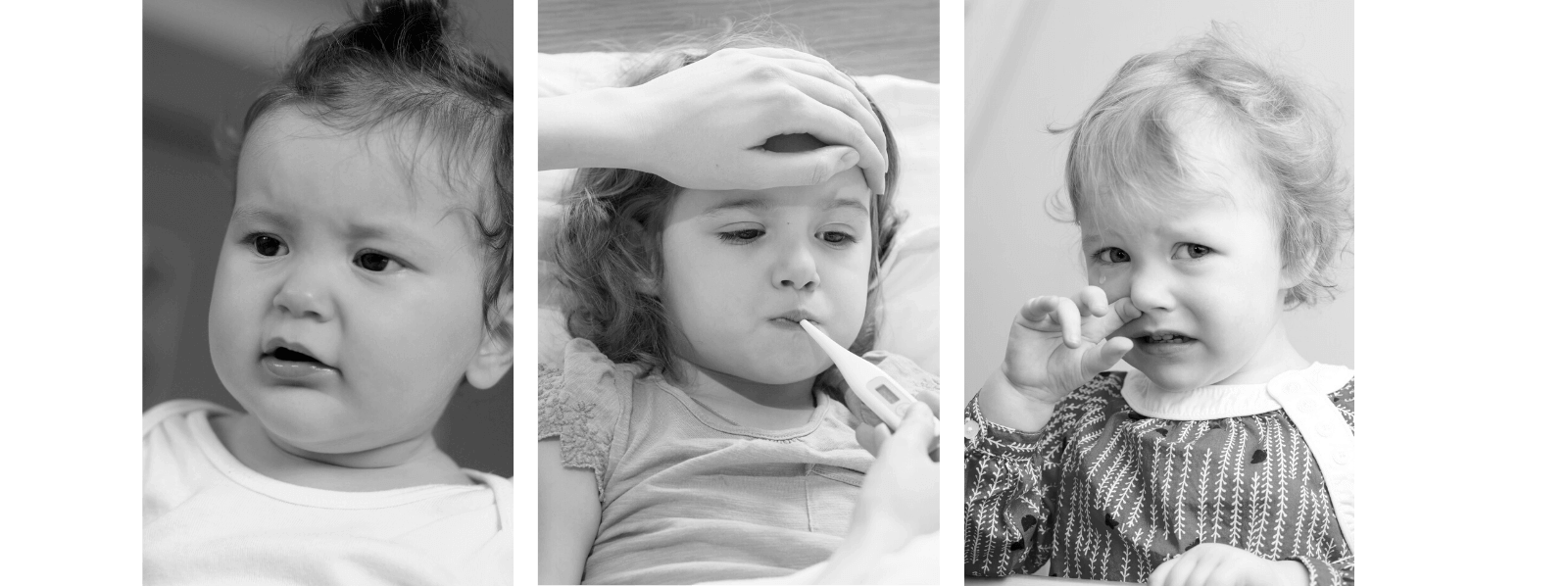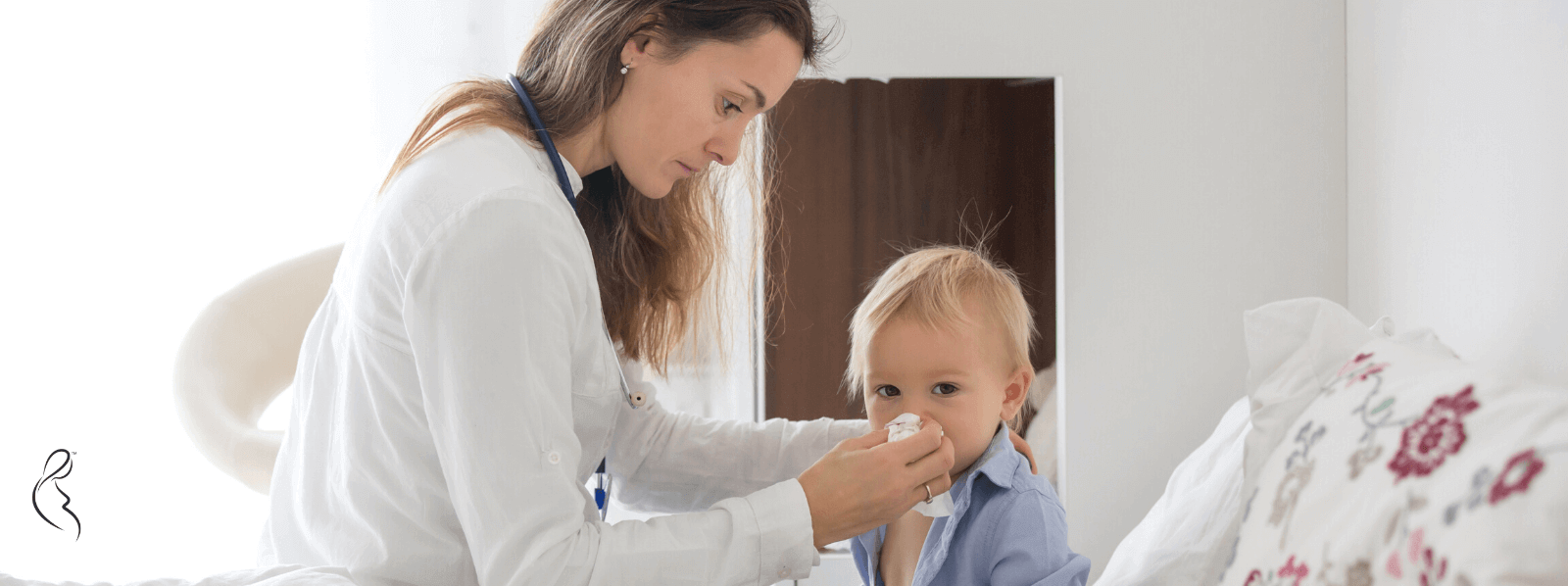Baby’s First Cold

Our babies need some time for their brand new immune systems to be fully developed. This makes them susceptible to viral infections, which cause illnesses such as colds.
As a new parent, it’s normal for you to feel dreadful about your precious one catching her first cold. But this is a normal part of her childhood, and it will inevitably happen at some point. So, to ease the fear, we’ve rounded up everything you need to know about your baby’s first cold and what you can do about it.
“There will be days in your life when you’ll realize – Mama’s love is the only medicine you need.”
– Intuitive Moms
ALL ABOUT YOUR BABY’S FIRST COLD
The common cold is also known simply as a cold. It is an infectious viral disease of the upper respiratory tract and it primarily affects the respiratory mucosa of the nose, throat, sinuses, and larynx. There’s a reason why colds are called common- many healthy children experience about 8 to 10 colds and other viral infections in the first two years of life; while adults experience an average of 2 to 3 colds per year.
Signs and Symptoms
The first signs of the common cold in a baby include:
- Congested or runny nose
- Nasal discharge (clear at first but might thicken and turn yellow or green)
The other signs and symptoms of a common cold in a baby may include:
-
- Sore or scratchy throat
- Fatigue or crankiness
- Fever
- Decreased appetite
- Sneezing
- Difficulty sleeping
- Coughing
- Irritability
- Trouble nursing or feeding because of nasal congestion
- Babies over the age of 2 months may experience a bit of a fever – temperature over 100.4 degrees. Keep in mind that the fever shouldn’t last over 1 or 2 days
NOTE: If the fever lasts over 2 days and is on and off, your baby is fighting some kind of virus.
What to do: If the fever persists, please call and see your doctor
Pay attention to your baby’s breathing.
What to do: This is the most important thing to pay attention to. The chest should be pink and nice, even when your little one is coughing. Your baby’s chest doesn’t have to move in and out and your baby doesn’t have to use his/her tummy to help him/her breathe.

The common cold virus is most often transmitted via airborne droplets or aerosols, direct contact with nasal secretions from infected individuals, or contaminated objects.
Colds in newborns aren’t unusual. The viruses which cause colds can survive in the air and on surfaces for short periods of time. This makes it possible for the transmission to occur with or without direct contact with someone who’s sick.
For kids, transmission is common at school or in daycare because of the proximity of many children with little immunity and frequently poor hygiene. The infections may then be brought home to other members of the family.
When to see your baby’s pediatrician
We are all aware that our babies’ immune systems will need time to develop fully. Pay close attention to them, especially if they are showing and experiencing signs and symptoms of any illness.
If your baby has a cold without any complications, it should be resolved within 10 to 14 days. But it’s very important to take your baby’s signs and symptoms seriously. If symptoms don’t improve or if they worsen, it’s time to talk to your doctor.
If your precious one is younger than 3 months of age, consult your doctor early or upon the onset of the illness. This is to make sure that no other serious illness is present, especially if your baby has a fever.

Call the doctor if your baby experiences:
- Trouble breathing
- Temperature higher than 38 Degrees Celsius or 100.4 Degrees Fahrenheit
- Persistent cough for days
- Ear pain or is unusually irritable
- Not peeing or pooping as frequently as usual
- Red eyes or has yellow or greenish eye discharge
- Other signs or symptoms that worry you, such as an unusual or alarming cry or not waking up to eat
Seek medical help immediately if your baby:
- Coughs up blood-tinged mucus
- Refuses to nurse or accept fluids
- Is frequently vomiting or shows changes in skin color
- Has difficulty breathing or is bluish around the lips
- Is lethargic or unusually sleepy
Having children is my greatest achievement. It was my savior. It switched my focus from the outside to the inside. My children are gifts, they remind me what’s important.
– Elle Macpherson
DEALING WITH YOUR BABY’S FIRST COLD
Now that you have an understanding of what your baby’s first cold will be like, we’ll show you how you can keep common colds at bay or address it if your child experiences it.
Here’s Your Ultimate Guide To Dealing With Your Baby’s First Cold
Babies can catch about eight to ten colds in a year, making colds a common illness. Usually, you can let the infection run its course, but you have to be cautious and make an extra effort to check in on them.
Not panicking but being vigilant and present-minded can aid in helping your precious one regain their strength. When you know how to help your child feel better and when to call the doctor, you can feel more confident until the cold is over.

The beauty that surrounds me is breathtaking;
it’s the faces of my children
Anabela Loureiro
